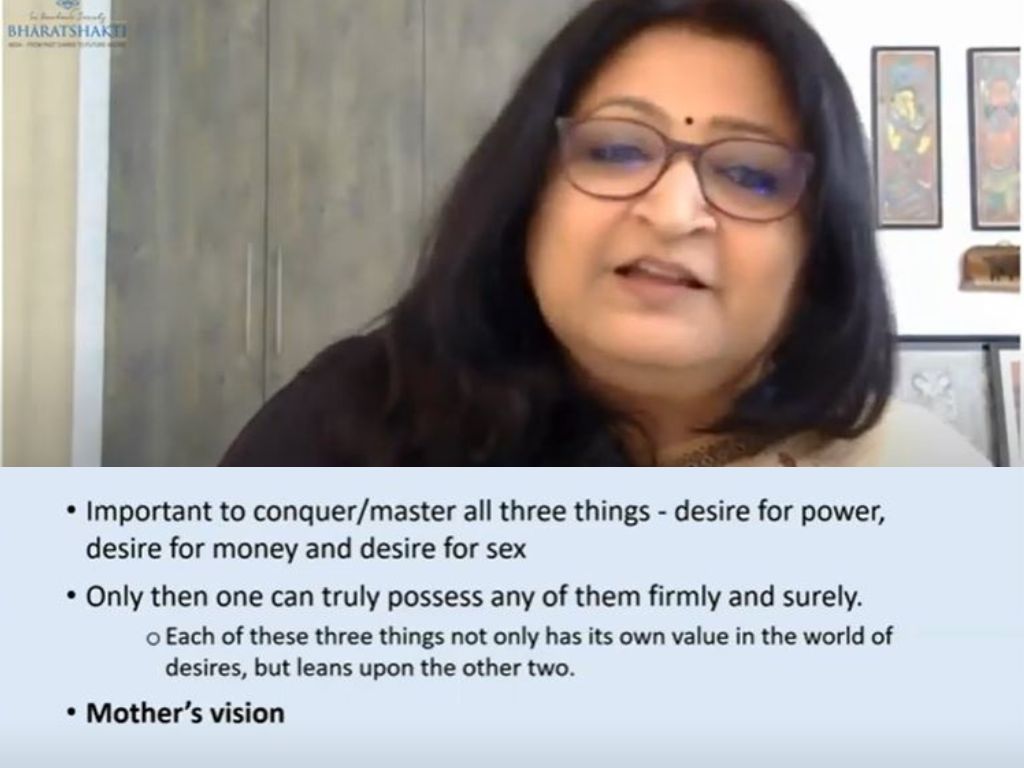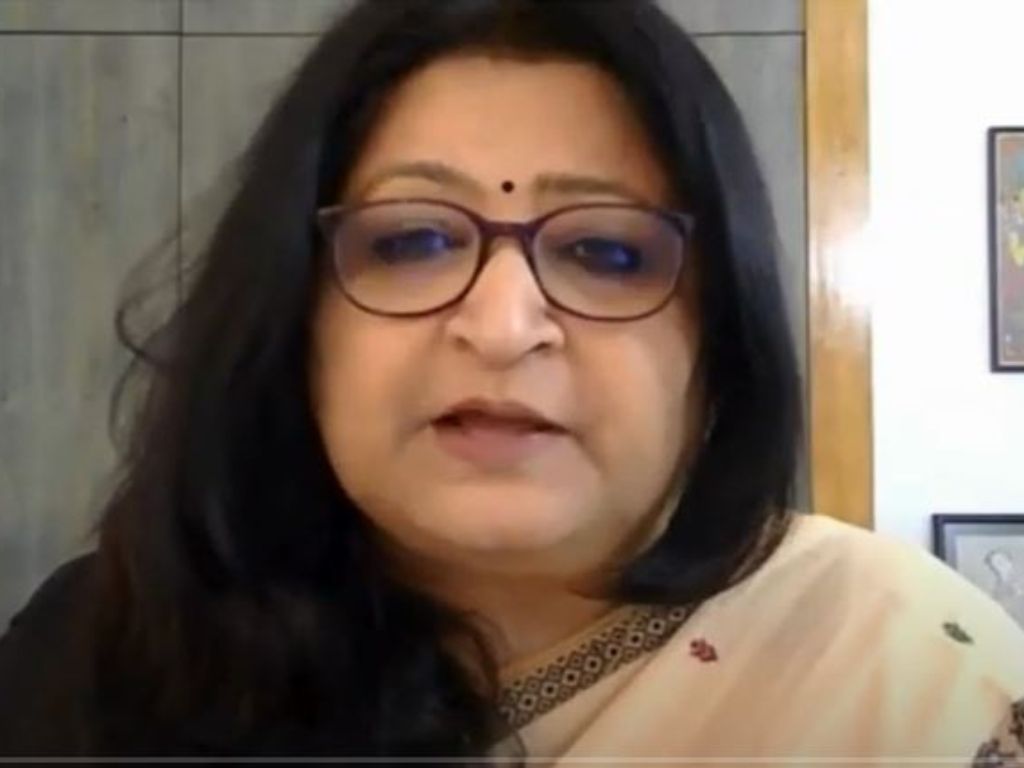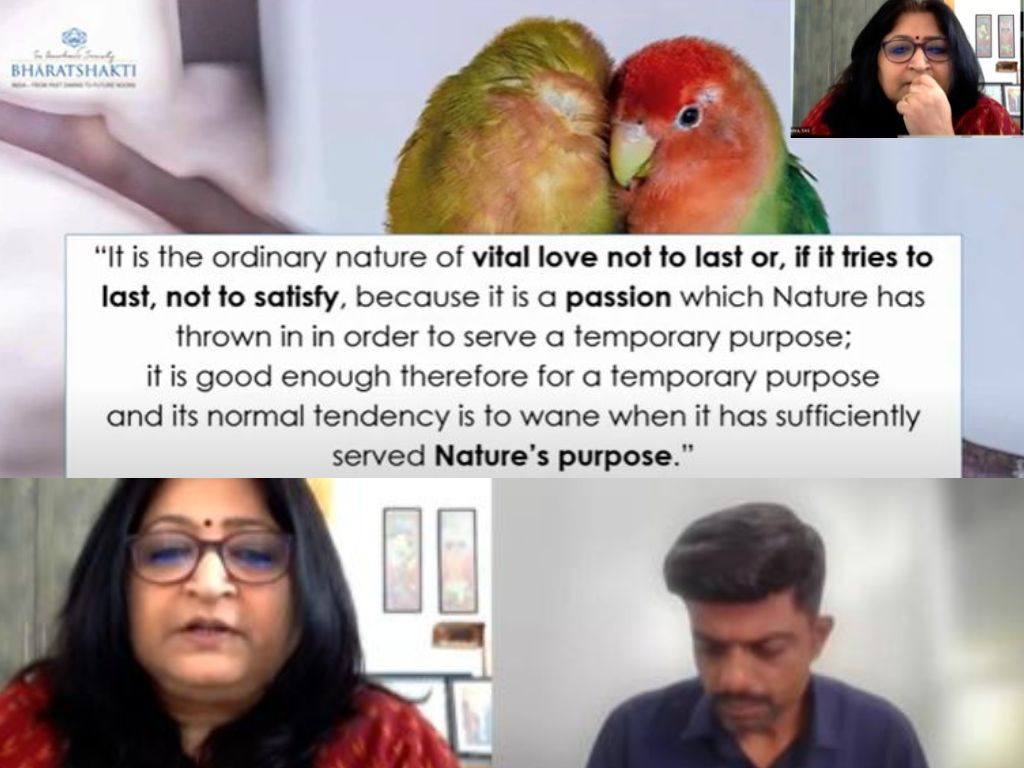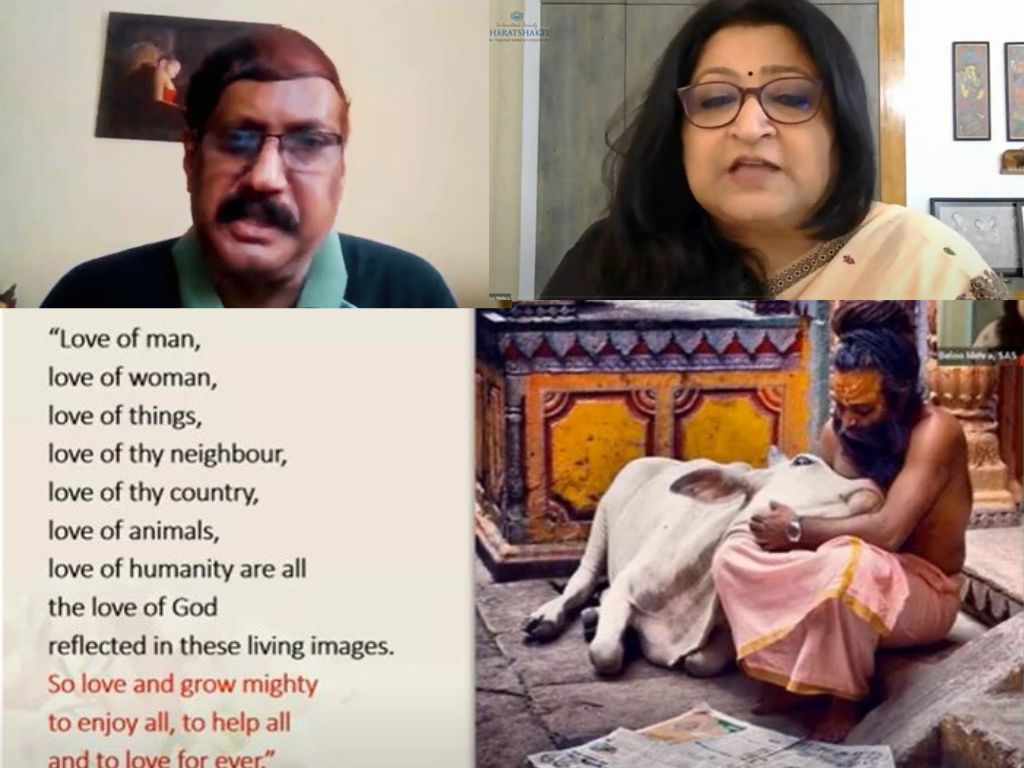Start Date: April 26, 2025
End Date: May 24, 2025
Venue: Online
Love and relationships are at the root of all human life as lived in our familial and societal contexts. But ordinarily, most people do not take the trouble to examine and understand the nature of these two things. Consequently, we go through life situations experiencing a variety of emotions, ranging from pleasure to pain, from passion to indifference, from happiness to sadness, from calmness to rage, and so on. Such ups and downs cause much turmoil and also lead to strained and troubled relationships.

Generally, much of what young people learn about love and relationships is through popular culture and social media. Such unfiltered exposure to a variety of influences is not necessarily educative but often ends up stimulating the lower nature of the individual–instincts, passion, and sensations, resulting in a more muddled understanding.
During the recently concluded 5-week online course, conducted by BhāratShakti, Sri Aurobindo Society, a group of 14 participants along with the course facilitator, Dr. Beloo Mehra, examined the nature of love and human relationships using a deeper psycho-spiritual view.

The weekly 1.5-hour-long sessions were held on Saturday mornings. This was followed by further sharing of short readings and follow-up discussion via an online forum. Each session began with a short reading of a relevant passage from Sri Aurobindo’s Savitri or the Mother’s Prayers and Meditations.
During the introductory session, Dr. Mehra reminded the participants that no human experience is insignificant in the wider view of life and existence that has been given to us by great yogis, sages and seers such as Sri Aurobindo and the Mother. We find highly relevant insights on almost all aspects of life in their writings and teachings. One of the key objectives of the course was to explore and reflect on some of these insights as applicable to the topics of love and human relationships.

She highlighted that a deeper awareness of the nature of human love and its expression through different relationships can prepare us to deal more effectively with inevitably shifting life situations. By becoming conscious observers of the various emotions and impulses and instincts that fill up the space of our human relationships we can also avoid going through unnecessary turmoil in our outer lives and needless disturbances in our inner lives.

Topics explored during the course:
- When Love descended into the Inconscience
- Human Love and the Ego
- Forces that have strongest attraction for the human ego and Asura
- Gṛhasth-dharma and the Future of Marriage and Family
- Disharmony in Human Relations
- Learning to Love Better
Some of the main themes highlighted during the online sessions were inspired by the words of the Mother where she explains that love is one of the great universal forces which exists by itself and its movement is free and independent of the objects in which and through which it manifests. She adds further that the force of love manifests wherever it finds a possibility for manifestation, wherever there is receptivity, wherever there is some opening for it.
So how do we prepare ourselves as a receptacle for the force of love? What are the distortions that corrupt this force of love because of human egoism and the lower vital nature and instincts and impulses? How do we keep purifying our vital nature so that the distorting influence of our lower vital nature on this force of love begins to recede?

Dr. Mehra prepared a brief presentation for every session. She carefully selected some helpful guidance from Sri Aurobindo and the Mother on the complexity of human relationships. Time was spent during the interaction part of the online sessions to reflect on Sri Aurobindo’s and Mother’s penetrating insight into the nature of human love that is primarily a movement of the vital ego.
In one specific session, the issue of family life and man-woman relationship was taken up, especially when one or both the individuals also aspire for a spiritual life. She emphasised that it is important to remember that Sri Aurobindo and the Mother always pointed out that each case is different, and their guidance was directed to the specific context of each individual’s inner aspiration. Nonetheless, there are several nuggets of wisdom that are helpful to a vast number of aspirants, which is what was being discussed during the course sessions.

Dr. Mehra also highlighted that according to Sri Aurobindo one of the aims in Integral Yoga — which looks at all life as yoga — is to purify and transform the usual egoistic human love into a purer love towards the Divine at all levels of the being. He explained that after one enters the spiritual life, the relationship with the Divine takes precedence over the ordinary social relations. Either the family relations naturally fall off or become the ground for karmayoga based on the soul’s need. This point was discussed through several examples during the interaction part of the session.
Other questions discussed via an interactive approach included: is any human love unconditional in the truest sense? As an adult responsible for teaching the child the right values and give a positive start in life, doesn’t a parent also expect the child to behave in a certain way? How does such expectation or desire change the nature of the parental love?

The topic of children’s responsibility toward parents was also taken up. In another session, a sensitive topic of confusion between sex and love was also taken up, for which insights from Sri Aurobindo’s Letters on Yoga were were used to explore the nature of this force which can be easily distorted by the hostile forces. Discussion that ensued following this brief presentation focused around the need for inculcating this awareness in the youth, through grounded and frank conversations in families and educational contexts.
Throughout the course, Dr. Mehra pointed out selected letters and conversations of Sri Aurobindo and the Mother in which they guide the sādhakas on the right place of friendship and affection in the path of Integral Yoga. Time was also spent on discussing and reflecting on practical guidance given by them on how to handle the sources of disharmony in human relations in daily life. These sources include narrowmindedness, dislike and fault-finding in others.

It was also highlighted that true love is self-sufficient and is a source of immutable happiness which simply keeps giving without any expectation. Human love can be taken as a practice ground to expand and purify oneself to receive the universal force of love. But it is the love that one simply feels for others, love that one gives to others which can be purified and refined to the status of becoming true, pure love. Because it is only the love that one gives which brings joy and calmness. Love that insists that it needs reciprocation can never be true love. In this context, the Mother’s explanation of rungs of love was also discussed.

The way to an ideal of love rooted in the psychic is different for different people, Dr. Mehra pointed out. For some the way is to leave everything else to follow the Divine alone, the way of the ascetic. However, this doesn’t really mean an aversion for anybody any more than it means aversion for the world and life. There is also another way, the path of purification and transformation of the vital.

This path essentially means progressively establishing one’s poise at a deeper psychic level instead of vital ego. It requires that jealousy, strife, hatred, aversion, rancour and all other evil vital feelings must be altogether abandoned. All egoistic love and attachment will have to disappear also. This is the path toward an integral perfection. This path leads the individual and the collective to a greater Harmony – within and without, and to a deeper Love, love that heals, love that quenches the deepest thirst.
Overall, the course was appreciated by the participants. It was suggested that further exploration of these topics be taken up during another course in future.
For more courses and study groups designed and facilitated by BhāratShakti department, see HERE.
